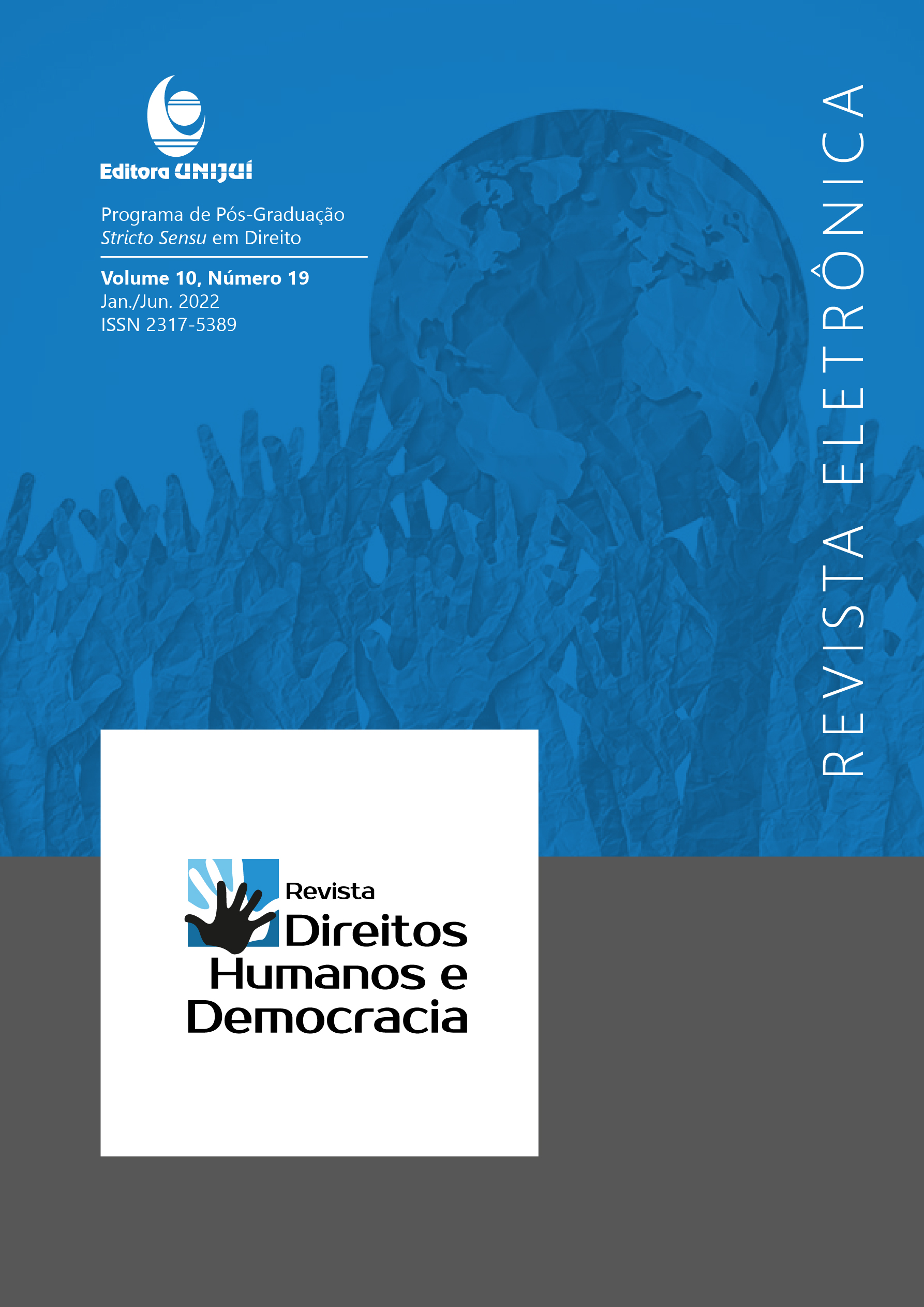Bienal do Livro do Rio de Janeiro e conteúdo LGBTQ+: A limitação para representação visual de conteúdos inapropriados para crianças e adolescentes
DOI:
https://doi.org/10.21527/2317-5389.2022.19.11193Palavras-chave:
Crianças e adolescentes, Bienal do livro, Conteúdo inapropriado, LGBTQResumo
O presente artigo tem como base problematizar qual seria a limitação para que determinado conteúdo fosse considerado impróprio para crianças e adolescentes, utilizando como base principal o caso ocorrido na Bienal do Livro do Rio de Janeiro, o Estatuto da Criança e do Adolescente e julgados correspondentes. O trabalho foi dividido em três tópicos, sendo utilizada análise jurisprudencial, bibliográfica e legislativa, além do método dedutivo. O primeiro tópico trata especificamente dos argumentos utilizados nas decisões relacionadas à Bienal e se livros com temática LGBTQ+ seriam considerados impróprios para o público infantojuvenil. Em seguida, analisa-se o Estatuto da Criança e do Adolescente, que explicita a proteção especial na tentativa de compreender o que é considerado conteúdo inapropriado, além das manifestações do Conselho Nacional dos Direitos da Criança e do Adolescente (Conanda) e do Conselho Nacional de Direitos Humanos (CNDH) sobre o mesmo assunto. No terceiro tópico examinam-se os julgados do Superior Tribunal de Justiça na tentativa de compreender qual o direcionamento da Corte com relação à limitação de conteúdo impróprio. Conclui-se que a limitação visual de conteúdos inapropriados para crianças e adolescentes caracteriza-se na apresentação de conteúdo pornográfico e obsceno, o que não é demonstrado nas manifestações de afeto de casais homoafetivos nas obras ameaçadas de retirada de circulação na Bienal.
Downloads
Publicado
Como Citar
Edição
Seção
Licença
Copyright (c) 2022 Revista Direitos Humanos e Democracia

Este trabalho está licenciado sob uma licença Creative Commons Attribution 4.0 International License.
Ao publicar na Revista Direitos Humanos e Democracia, os autores concordam com os seguintes termos:
Os trabalhos seguem a licença Creative Commons Atribuição 4.0 Internacional (CC BY 4.0), que permite:
Compartilhar — copiar e redistribuir o material em qualquer meio ou formato;
Adaptar — remixar, transformar e criar a partir do material para qualquer fim, inclusive comercial.
Essas permissões são irrevogáveis, desde que respeitados os seguintes termos:
Atribuição — os autores devem ser devidamente creditados, com link para a licença e indicação de eventuais alterações realizadas.
Sem restrições adicionais — não podem ser aplicadas condições legais ou tecnológicas que restrinjam o uso permitido pela licença.
Avisos:
A licença não se aplica a elementos em domínio público ou cobertos por exceções legais.
A licença não garante todos os direitos necessários para usos específicos (ex.: direitos de imagem, privacidade ou morais).
A revista não se responsabiliza pelas opiniões expressas nos artigos, que são de exclusiva responsabilidade dos autores. O Editor, com o apoio do Comitê Editorial, reserva-se o direito de sugerir ou solicitar modificações quando necessário.
Somente serão aceitos artigos científicos originais, com resultados de pesquisas de interesse que não tenham sido publicados nem submetidos simultaneamente a outro periódico com o mesmo objetivo.
A menção a marcas comerciais ou produtos específicos destina-se apenas à identificação, sem qualquer vínculo promocional por parte dos autores ou da revista.
Contrato de Licença: Os autores mantém os direitos autorais sobre seu artigo, e concedem a Revista Direitos Humanos e Democracia o direito de primeira publicação.













